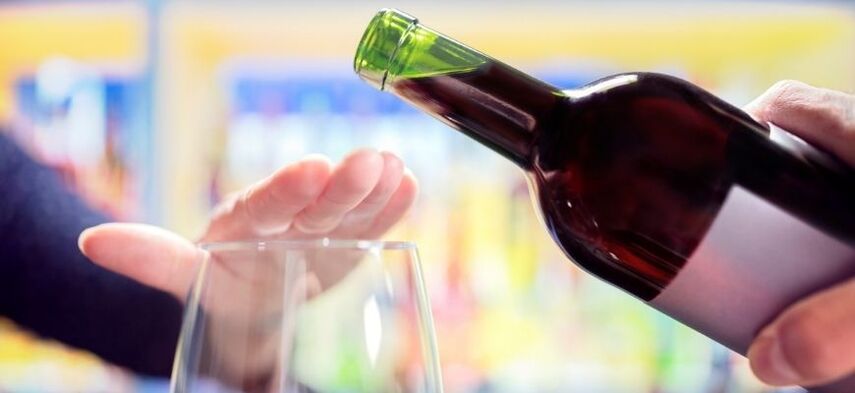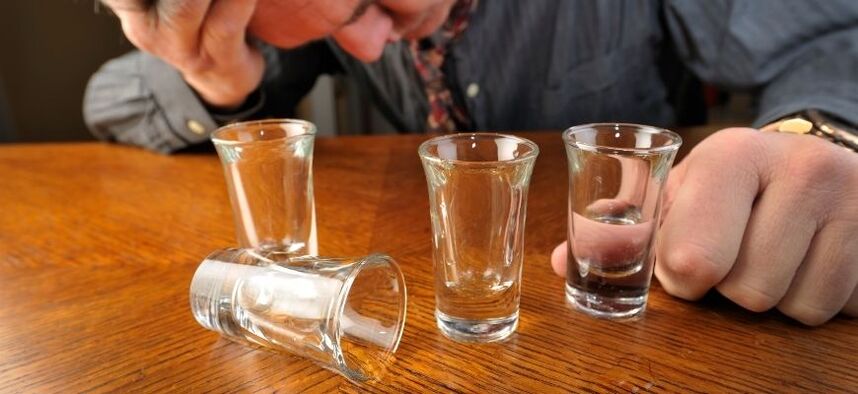Treatment of any form of alcoholism involves the patient’s complete rejection of alcohol. The success of therapy is reduced to zero if the patient has no desire for the person to live in a calm state. On the other hand, one’s awareness of one’s own illness is already the first step towards achieving forgiveness. Such awareness is the result of very complex work on oneself and requires a lot of time and effort. Therefore, to stop drinking, it is best to see a doctor.

Reasons to stop drinking alcohol
There are many reasons why a person stops drinking. Among the most notable are:
- the desire to be healthy;
- deterioration in health status and development of chronic diseases;
- more attractive appearance in people who do not have problems with alcohol;
- a calm, sharp and undefiled mind, a desire to understand the surrounding reality adequately;
- high efficiency;
- good attitude in the workplace and a perfect reputation;
- save money (financial spending on alcohol always takes a significant share in the budgets of people who are alcoholics);
- high sexuality, no problems with potency in men or menstrual cycle in women;
- the presence of strength and time (after all, the life of a person who is in the web of alcohol is guided by one desire - to drink);
- excellent state of mind, cheerfulness;
- healthy atmosphere at home;
- full, bright and healthy life;
- healthy offspring.
The road to a quiet life is very long and difficult. However, one has a chance to get rid of the addiction by following the doctor’s advice. The most important thing for this is to have a strong desire to heal and an iron will.

Can someone stop drinking on their own?
Doctors warn: no former alcoholics. Alcoholism is an incurable disease. However, patients always have a chance to achieve stable remission and stop drinking alcohol. The duration of the calm period is variable and can range from a few months to several decades.
The method of mental influence on the patient is effective in stopping alcohol intake. They allow you to inspire patients with negative attitudes towards alcohol and thus prevent relapse. Subject to a positive outcome, a strong belief is formed that he can live a healthy and satisfying life without drinking a drop of alcoholic beverages.
Successful treatment of alcoholism depends on a large number of factors. Most importantly it is the person himself who decides whether to drink alcohol or not.
Spontaneous forgiveness
It is rare that a person stops drinking spontaneously. Certain factors drive for this: there is the acceptance of the disease itself, and then the decision that something needs to be changed in one’s life.
The main disadvantages of spontaneous remission are persistence and indeterminate spontaneity.
Motivational Forgiveness
In this case, a person consciously refuses to drink alcohol. More often this happens if there is a threat to someone’s life. Consciously rejecting alcohol, one also poses some financial problems, as well as solves the problem of raising a family.
Gradually, one concludes that complete rejection of alcohol will allow him to achieve his goals in life and unify success. In forgiveness, he is fully convinced that his choice is the right one and becomes a priority, despite the temptations. Moreover, every victory over alcohol and the consent of the people around him further strengthens the calm position.
Forced pardon
Not always someone strives for a healthy lifestyle voluntarily. Many people who are addicted to alcohol do not always understand how dangerous their bad habits are. However, the situation took over. For example, if a working director or spouse, the child puts someone before a choice, he or she needs to be compliant. Otherwise, it will be displayed for the rest of the life of the alcohol addict.
Forced pardons are usually not long -lasting. Moreover, a person is always in a tense state, as he experiences hardships and difficulties from such coercion. Damage after such remission usually has very serious consequences.
Somatogenic remission
If a person finds out about a sudden deterioration in health, he or she usually stops drinking alcohol. The most common situation is when the patient has to give up alcohol on the background of delirium tremens.
Also, alcoholics fear the consequences of a serious illness (e. g. , heart attack or stroke). With a background of negative emotions, they completely lose their attraction to alcohol. Awareness of the dangers of alcohol, albeit slowly, forms a new attitude: survival is a higher priority than drinking alcohol and short -term intoxication.
Psychogenic forgiveness
This variant of alcohol withdrawal is associated with somatogenic remission. When a person finds out what he did while intoxicated, he is in for a big shock. Embarrassed by his actions, he decided to stop drinking.
There are many such reasons. Often it is:
- road accidents due to drunkenness;
- trials on the lives of their own children;
- violence.
Such forgiveness is unstable and short -lived. Sometimes a strong trigger works in the opposite direction, and the person starts drinking more. In the case of alcohol forgetfulness, suicide is not ruled out.
Remission after intoxication
The nature of this remission cannot be fully ascertained. It is typical for people who abuse alcohol chronically. One day they stopped drinking, and they did not dispute this decision.
Doctors suggest that at some point, poisoning with ethyl alcohol and its decomposition products reaches critical limits. During this time, biochemical processes in the brain change, and a reluctance to alcoholic beverages appears. It should be noted that the taste, smell of alcohol becomes unpleasant suddenly. Even small doses cause nausea and vomiting.
Remission after intoxication is relatively stable. However, relapse is not excluded, when, against the background of a quiet lifestyle, a person's state of health improves significantly.

Tips for people who want to stop drinking
Not everyone who has previously abused alcoholic beverages can easily hold a conscious state. Some have a painful craving for alcohol, a desire to immediately skip a glass or two. For those who are firm and confident embarking on a calm path, such advice can help.
- You should contact a specialized clinic. Here, the specialist will select an individual treatment plan, prescribing effective medication if necessary. Psychologists and rehabilitation specialists will help you get out of the party, cleanse your body and develop a persistent negative attitude towards ethanol use.
- If you want to stop drinking, that’s half the fight. Patients should recognize the presence of this disease. If possible, alcohol problems should be discussed with loved ones.
- The patient should stop all contact with the person he or she drinks with and who tolerates his or her addiction.
- Get rid of all alcoholic beverages in the house. This will make it easier to avoid temptation. If there is a calm reaction to the person drinking alcohol, this is already successful.
- You need to be prepared for the fact that withdrawal symptoms will develop during alcohol withdrawal. At the same time, various psychophysiological disorders will be tormented. The urge to take it off can be very strong. At this point, it is important not to succumb to weakness. Dealing with withdrawal symptoms is very difficult, so you should trust an expert.
- You should read the literature on various aspects of alcoholism. It is important to avoid dubious sources of origin. Any questions can be discussed with the doctor.
- The daily routine should include a wide variety of physical activities. It is important to eat well and completely, as well as relax. It is ideal to learn how to avoid stress, or at least not react to it.
- Some can be helped by moving, communicating with others.
- Exciting hobbies will enhance the emotional background. Some people are helped by professional exchanges, volunteering and outdoor activities.
- At meetings, holidays, you need to find alternatives to alcoholic beverages, which, unfortunately, have become traditional. Even one cocktail can thwart all previous efforts.
There is no one size fits all method to stop drinking. Every alcohol addict should look for the most appropriate option. To avoid recurrence and achieve a positive effect, it is important to contact a specialist.































